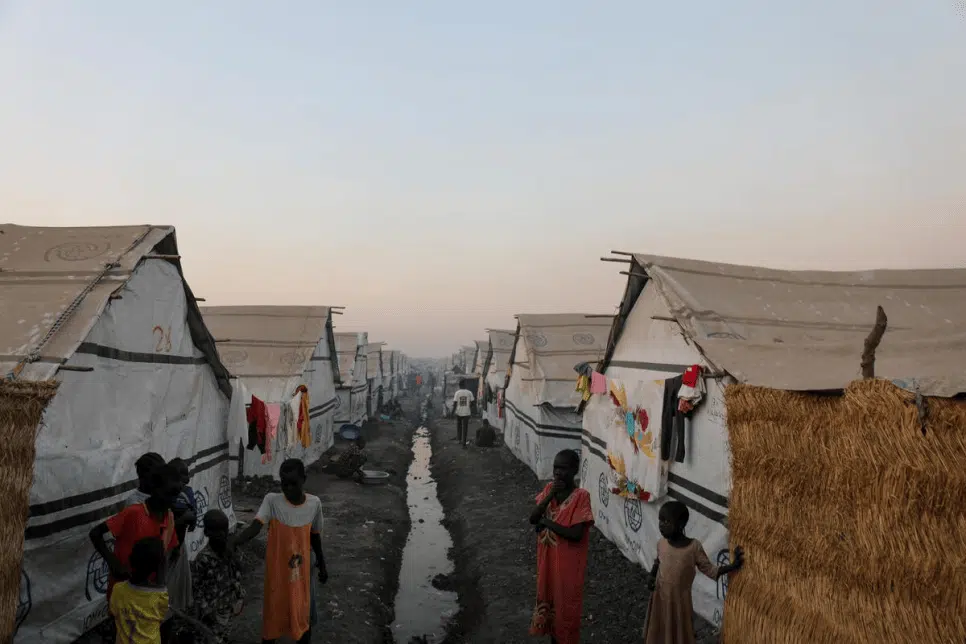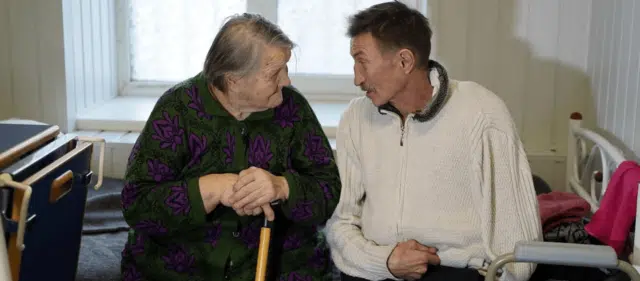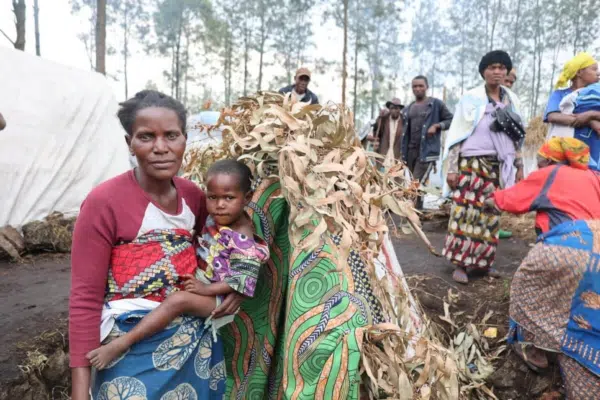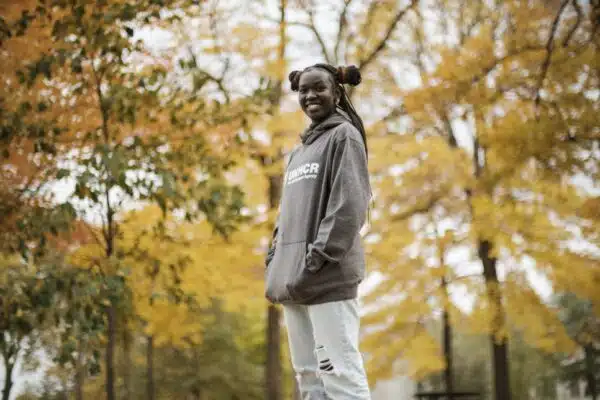
Family shelters at the Malakal Protection of Civilians site where Jokino Othong Odok has lived, just a few kilometres from his former house, since 2013. © UNHCR/Charlotte Hallqvist
In the face of protracted conflict and climate-fuelled crises, those displaced within and from South Sudan jointly call for an end to conflict.
Meanwhile, across the border in South Sudan, ethnic tensions are on the rise again, with new internal displacements happening in eight out of 10 states in the country, spurred on by severe flooding and competition for resources.
Before the start of what he refers to as the “crisis” in 2013, Jokino worked for the Catholic Dioceses of Malakal, serving his community as part of a church-based organization. He now lives just a few kilometres from his former house, sharing a small room with eight family members in the Malakal Protection of Civilians (POC) site in South Sudan’s Upper Nile State, a UN displacement site protected by UN peacekeepers. Despite its proximity to his house, he still can’t go home due to persistent ethnic tensions.
“We are fed up with living in the POC,” says Jokino. “We have our houses in Malakal town, which we cannot occupy now because other people are occupying them. And because there is no protection for us there,” he says. “We want to live freely like any ordinary citizen of the world.”
In Upper Nile State, conflict has broken out again, meaning that more people have continued to arrive at the POC, which is already severely overcrowded. Due to space constraints, the new arrivals are forced to settle in the camp’s schools, pausing education for children in the site, one of many issues facing residents.
“Why are our children different?” asks Jokino. “My hope is that there is peace, there is security, so that we can live freely, our children can access education, [and] live like any other children in the world.”
“We really want to love this country.”
Across borders, Jokino and Sawibu voice similar hopes for the future. They talk about education and livelihoods and their desire to apply the skills they have to support their communities and build their country. Sawibu explains that even “members of our community who have education struggle to find work”, painting a picture of an entire generation’s future stunted by conflict. “If there was peace not war, we could go back [home] and use their skills to develop our country.”
Jokino feels similarly: “We live on things which are handed out, the goodwill of others … but a human being with ambition to live a better life doesn’t want to live like this.”
On 21 February, UNHCR together with 108 partners, including humanitarian, development and civil society actors, launched the 2023 Regional Refugee Response Plan, appealing for US$1.3 billion to provide life-saving assistance and protection to over 2.2 million South Sudanese refugees and asylum-seekers living in the DRC, Ethiopia, Kenya, Uganda and Sudan. This appeal is to support neighbouring countries hosting South Sudanese refugees and complements the 2023 Humanitarian Response Plan which aims to address humanitarian needs inside South Sudan.
Above all, both men hold out hope for peace to return to their country. “I need a peaceful South Sudan, where every South Sudanese can enjoy life, so that we don’t have to hate our country,” said Sawibu. “We really want to love this country.”
Originally published by UNHCR on 16 March 2023.





